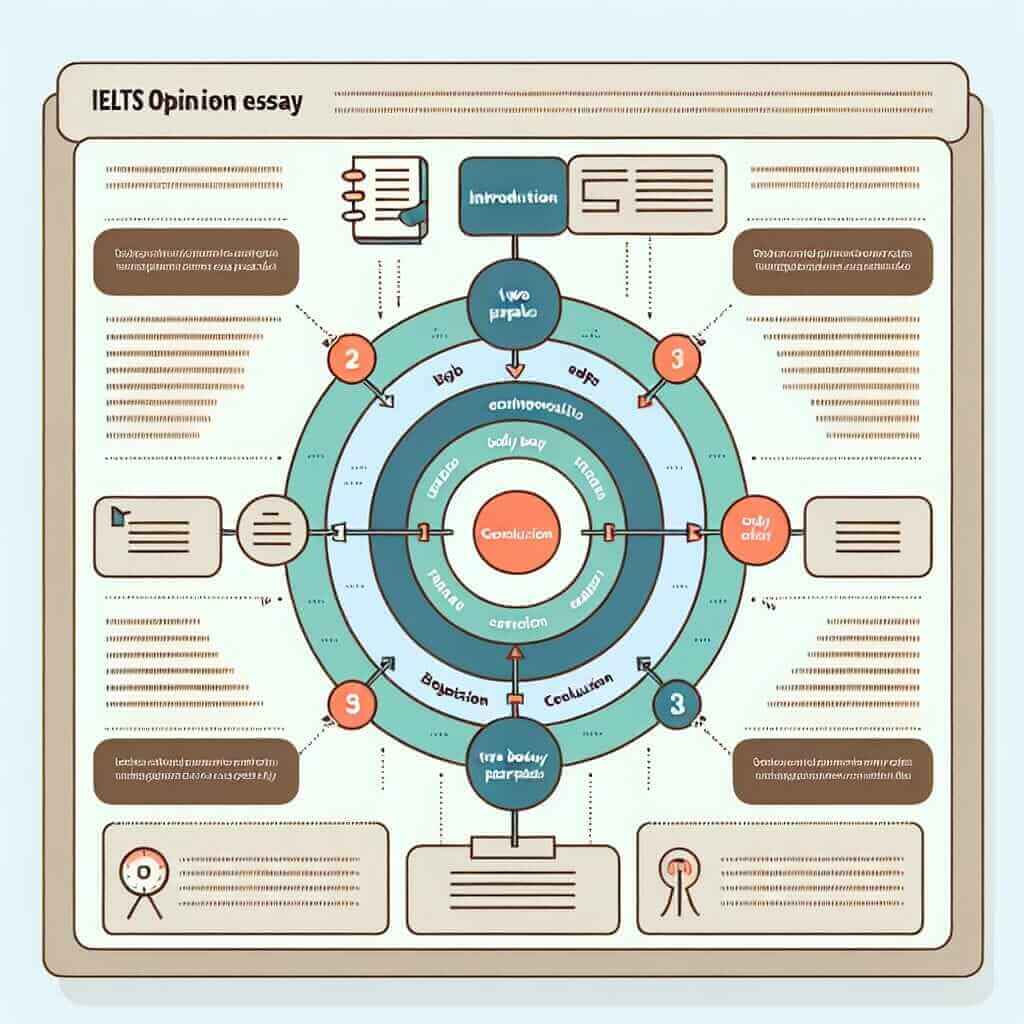The IELTS, or International English Language Testing System, is a globally recognized test of English language proficiency for non-native speakers. The writing section of the IELTS can be particularly challenging, especially the opinion essay, also known as the “agree or disagree” essay. In this comprehensive guide, I’ll share my 20+ years of experience teaching IELTS to help you master the art of crafting a high-scoring opinion essay.
Understanding the Opinion Essay Task
Before we delve into the specifics, let’s clarify what an opinion essay entails in the IELTS writing test. You’ll be presented with a statement and asked to give your opinion on it. This isn’t about right or wrong answers; it’s about how well you can articulate and support your viewpoint in academic English.
Common Question Styles
Here are some ways the opinion essay prompt might be phrased:
- To what extent do you agree or disagree…?
- Do the advantages outweigh the disadvantages…?
- What is your opinion on this…?
- Discuss both views and give your opinion.
Crafting a Winning Opinion Essay: A Step-by-Step Approach
1. Analyze the Question Carefully
Take a moment to fully understand the prompt. What is the key issue being discussed? What are the keywords? Don’t rush into writing. Careful analysis is crucial for a focused and relevant response.
2. Plan Your Structure
A well-organized essay is key to a good score. Here’s a suggested structure:
- Introduction:
- Start with a hook to engage the reader. This could be a relevant fact, statistic, or brief anecdote.
- Paraphrase the essay question to show you’ve understood it.
- Clearly state your opinion (thesis statement).
- Body Paragraph 1:
- Present your main argument in support of your opinion.
- Provide relevant examples and evidence to back up your point.
- Body Paragraph 2:
- Present a second argument supporting your opinion OR acknowledge the counter-argument and refute it logically.
- Again, use examples and evidence.
- Conclusion:
- Briefly restate your opinion in a clear and concise manner.
- Avoid introducing new arguments in the conclusion.
3. Use Strong Topic Sentences
Each body paragraph should begin with a clear topic sentence that outlines the main idea of the paragraph. This helps the reader follow your line of reasoning.
4. Provide Supporting Evidence
Your opinions must be supported by evidence. This could include:
- Examples: Use real-world examples to illustrate your points.
- Statistics: If relevant, use data to add weight to your arguments.
- Expert Opinions: While not always necessary, you can refer to the views of experts to strengthen your stance.
5. Use a Range of Vocabulary and Grammar
Showcase your language skills by:
- Using synonyms: Don’t repeat the same words or phrases constantly.
- Employing a variety of sentence structures: Mix simple, compound, and complex sentences.
- Using appropriate linking words and phrases: This will ensure your essay flows smoothly.

Example: Opinion Essay
Question: Some people believe that the best way to improve public health is by increasing the price of unhealthy food. To what extent do you agree or disagree?
Essay:
In an era marked by rising healthcare costs and a surge in preventable diseases, governments are grappling with the best ways to enhance public health. One proposed solution involves increasing taxes on unhealthy food items, a strategy believed by some to be the most effective in curbing the consumption of these products. While I acknowledge the potential benefits of this approach, I firmly believe that it is not the optimal solution for improving overall public well-being.
Primarily, raising prices on unhealthy food disproportionately impacts low-income households. While proponents argue that higher prices deter consumption, those with limited financial resources may continue to purchase these foods simply because they are more affordable. This could exacerbate existing health inequalities, as less affluent communities may face greater barriers to accessing nutritious options.
Furthermore, focusing solely on price neglects the multifaceted nature of healthy eating habits. Education plays a crucial role in empowering individuals to make informed choices. Promoting nutritional literacy through public awareness campaigns, cooking classes, and school-based programs can equip people with the knowledge and skills to make healthier food choices, regardless of price.
In conclusion, while increasing the cost of unhealthy food might seem like a straightforward solution, I firmly believe that it is not the most effective way to improve public health. Addressing the issue requires a comprehensive approach that encompasses education, accessibility, and affordability. Empowering individuals to make informed dietary choices through a combination of initiatives is more likely to yield sustainable and equitable improvements in public health outcomes.
Tips for Success
- Manage your time effectively: Spend about 40 minutes on the opinion essay.
- Practice regularly: The more you write, the more confident you’ll become.
- Get feedback: Ask a teacher or tutor to review your essays and provide constructive criticism.
- Read sample essays: Analyze high-scoring essays to understand what makes them successful.
Remember, the key to acing the IELTS opinion essay is to present a well-structured, well-supported, and grammatically sound argument. With practice and dedication, you can confidently tackle this section of the IELTS writing test.